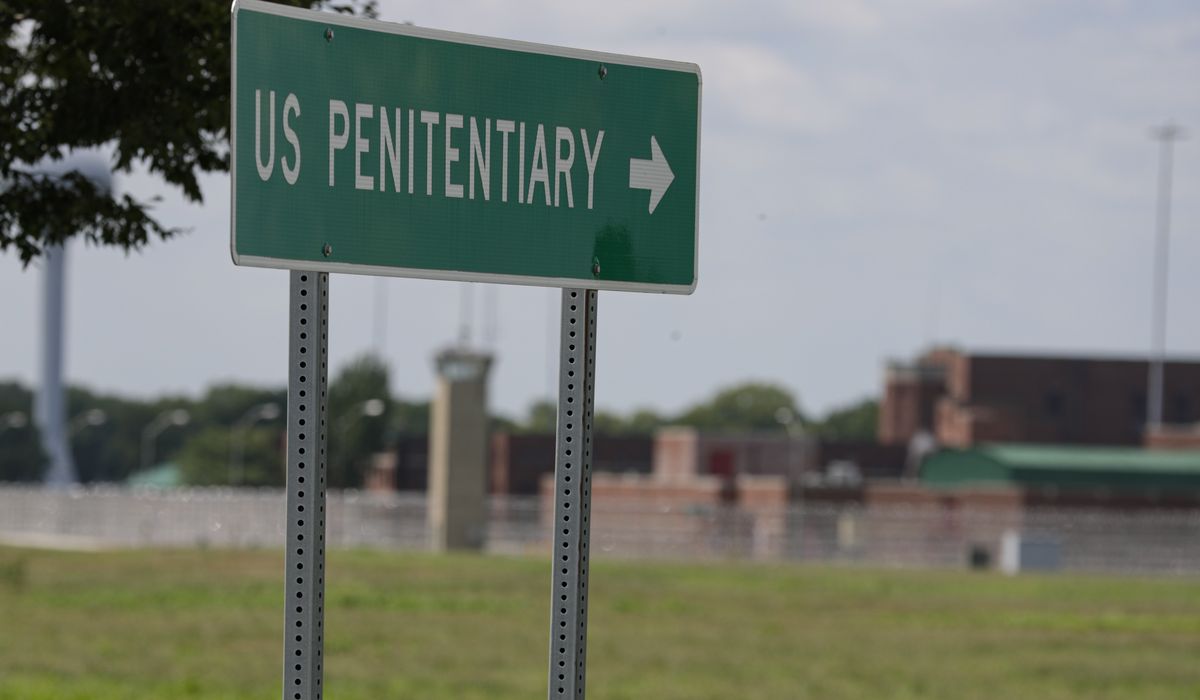
A Muslim inmate who was strip-searched by a transgender guard at a Wisconsin men’s prison has filed a federal lawsuit saying the search violated his faith and freedom of religion.
A three-judge panel of the 7th U.S. Circuit Court of Appeals, based in Chicago, heard the case on Sept. 22. A ruling is pending.
Several experts on prisoners’ rights and LGBTQ rights told The Washington Times that the case could be influential in constitutional and prison law.
In the lawsuit, Rufus West, 50, an inmate at the Green Bay Correctional Institution, says guard Isaac Buhle violated state regulations and Shariah law in 2016 by strip-searching him. When West complained, officials told him to get used to it, the lawsuit claims.
By assigning a guard “whose biological sex is observably female” to strip-search him, the prison deliberately ignored the inmate’s sincerely held belief that a woman who is not his spouse seeing him naked would cause him to “burn in hell for the rest of his days,” West’s attorney, Nicholas A. Gowen, told the judges.
The lawyer said the incident also violated the federal Religious Land Use and Institutionalized Persons Act of 2000 and the Fourth Amendment, which prohibits unwarranted search and seizure.
Mr. Gowen said West did not complain about Mr. Buhle doing anything other than viewing his naked body. He argued that a lower court improperly determined the validity of the inmate’s religious beliefs and ignored state regulations against cross-sex strip searches.
Brian Patrick Keenan, the Wisconsin assistant attorney general representing Mr. Buhle and state officials, including prison warden Scott Eckstein, argued that the strip search was not unreasonable because West said Shariah law promises hellfire regardless of whether a man or a woman sees him naked.
“It does seem to make, basically, this all based on Mr. West’s subjective beliefs about what’s necessary versus unnecessary versus being seen nude, because he was going to be seen nude by someone in order to do the strip search,” Mr. Keenan told the judges in the court’s 37-minute audio recording of the oral arguments.
Chief Judge Diane S. Sykes interrupted Mr. Keenan to say that his reading of this point “cannot be reconciled with the Supreme Court’s decision in Holt [v. Hobbs].” In that case, a Muslim inmate successfully argued that an Arkansas prison had imposed a substantial burden on his beliefs by shaving his beard.
“Officer Buhle participated as an observer, and that’s the religious liberty violation here, so there isn’t anything more that needs to be said about that,” said Chief Judge Sykes, a George W. Bush appointee.
The chief judge said the prison further violated the Holt v. Hobbs decision by forcing West to choose between surrendering his religious beliefs in future searches with Mr. Buhle or being punished. Prison regulations requiring two guards for a strip search procedure made Mr. Buhle a participant in the search of West, she said.
“He’s simply asking that the prison system comply with its own regulations that prevent cross-sex strip searches and comply with federal law,” Chief Judge Sykes said.
Mr. Gowen asked the panel to overturn the district court’s ruling and remand the case for further proceedings.
U.S. District Judge Pamela Pepper dismissed the case in March 2020 on the grounds that West’s religious conviction did not outweigh Mr. Buhle’s right to identify as a man and be treated as such in the workplace.
Ira P. Robbins, a prisoners’ rights expert who co-directs the Criminal Justice Practice and Policy Institute at American University, said the appeal will turn on how the 7th Circuit balances different constitutional provisions, as is common for prisoners’ rights cases in federal courts.
“The prisoner typically ends up on the losing side,” Mr. Robbins said.
Sharon Dolovich, director of the UCLA Prison Law & Policy Program and an expert on LGBTQ prison issues, said prisoners’ chances of winning increase in religious freedom cases.
Because West had a good-faith objection to being subjected to “an incredibly traumatic and invasive experience,” his outrage is understandable, she said.
“I think the court should decide in favor of Mr. West,” Ms. Dolovich said. “They have other officers who can conduct and observe the strip search, but they made a choice they didn’t have to make, which says a lot about their attitudes toward incarcerated people.”
In response to a request for comment, a spokeswoman for the LGBTQ advocacy group Human Rights Campaign wrote in an email that “we don’t want to speak to current/ongoing litigation until it’s resolved.” She promised a statement “once the Court comes out with a decision.”
Robert W. Tuttle, a professor of law and religion at George Washington University, said West’s complaint is part “of a much larger subset of cases where discrimination and religious rights collide,” even though the government differs from, for example, a private business that refuses to serve certain people on religious grounds.
“You have the right to be treated with equal respect and the rights, in this case the asserted right, to special solicitude for religious beliefs,” Mr. Tuttle said. “It’s really a story that has much broader resonance than prisons. There’s no obvious solution to this problem.”
West, also known as Muslim Mansa Lutalo Iyapo, is serving a 29-year sentence for a 1994 conviction on charges of armed robbery and possession of a firearm. He is scheduled to be released in June 2024.
